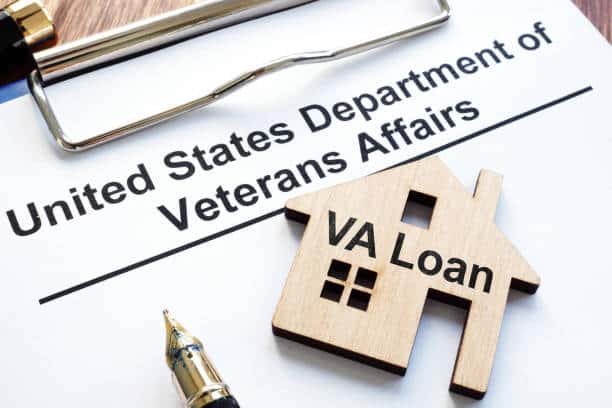Accessing a VA loan is a privilege that only specific individuals have. Some of these people are veterans, service members, and the surviving spouses of veterans who died while serving in the military. To help these veterans become homeowners, VA loans become available to them. We will explore the eligibility and benefits of taking a VA loan, the best VA loan lenders, and how to choose one.
What Is a VA Loan?
A VA loan is a specialized type of mortgage that the Department of Veterans Affairs (VA) of the United States of America only makes available to qualified borrowers as part of their military benefits package. They offer a home loan guarantee benefit and other housing-related programs to help eligible veterans, active-duty service members, and some surviving spouses become homeowners.
Private lenders provide VA loans, and the VA guarantees them, hence allowing the lender to offer more favourable terms to the borrower. Conventional loans have stricter rules regarding credit, the amount of money needed for a down payment, and the ratio of debt to income. However, these rules become flexible because VA loans are to help veterans get credit and compete in the housing market.
Also, VA loans tend to have lower interest rates and less money spent on closing costs. Because of this, they are an excellent choice for any veteran, but especially for first-time homebuyers who may need extra help to get into today’s very competitive housing market.
How Do VA Loans Work?
The VA loan process is the same as any other conventional loan program. However, there are some differences between the two. Private lenders issue VA loans, but the Department of Veterans Affairs (VA) guarantees a percentage of each loan against default. As a result, private lenders have the confidence to offer zero-down financing as well as favorable interest rates and terms for these loans.
There are also some significant differences between VA loans and most conventional loans. You will be charged and expected to pay for loan-related costs and fees differently when you use a VA loan.
VA Loans Requirements
To qualify for a VA home loan, you must meet the following requirements:
#1. Service History
Eligibility based on service history and duty status, evidenced by a certificate of eligibility (COE)
#2. Satisfactory Credit
You should have a satisfactory credit score, typically between 580 to 620
#3. Sufficient Income
You should have stable and sufficient income to meet monthly obligations and also, have enough residual income for discretionary expenses
#4. Personal Occupancy
The intention for wanting a house should be to occupy it as your primary residence within a reasonable time, typically within 60 days of the closing
#5. Property Requirements
The property must meet the VA’s minimum property requirements (MPRs). Those requirements are:
- One mandate of the VA is that each unit satisfies the basic standards for living, cooking, sleeping, and sanitary amenities.
- The property should adhere to all regional codes and regulations
- If the house is in a more rural region, there will be access to a private road.
- Water diverts away from the house via the drainage system.
- There is the availability of drinking and bathing water.
- There should be proper disposal of human waste via sewage systems.
Benefits of VA Loans
The VA loan program gives eligible service members, veterans, and also some surviving spouses a number of benefits. Some of the benefits include:
#1. No Down Payment
VA loans allow eligible borrowers to purchase a home without a down payment, hence making homeownership more accessible.
#2. Lower Interest Rates
VA loans typically have the lowest average interest rates compared to other loan types, saving borrowers money in the long term and reducing their monthly payments
#3. Government Guarantee
The federal government guarantees a portion of the VA loan, therefore, reducing the risk for lenders and enabling them to offer more favorable terms to borrowers
#4. Easier Qualification
VA loan guidelines tend to be more flexible than other loan programs, making it easier for eligible borrowers to qualify
#5. Lower Closing Costs
The VA limits the closing costs lenders can charge to VA loan applicants, thus making the loans more affordable.
#6. Foreclosure Avoidance Assistance
The VA provides financial counseling to help veterans avoid foreclosure during periods of financial difficulty
#7. Surviving Spouse Benefits
The VA funding fee is not charged to a surviving spouse, so the loan balance and monthly payment are lower. They may also be eligible for a VA streamlined refinance under certain conditions.
How Do I Obtain a VA Loan?
To obtain a VA loan, follow these steps:
#1. Contact a Real Estate Professional
Work with a real estate professional to find a suitable property and then negotiate a purchase agreement
#2. Find a Lender
Locate a lending institution that participates in the VA program, then get pre-qualified to determine how big a loan you can afford
#3. Get a Certificate of Eligibility (COE)
The certificate of eligibility verifies to the lender that you meet the eligibility requirements for a VA loan
#4. Sign a Purchase Agreement
Ensure the purchase agreement contains a “VA Option Clause” and allows you to “escape” from the contract without penalty if you can’t get a VA loan
#5. Apply for Your VA Loan
Complete a loan application and gather the needed documents, such as pay stubs and bank statements
#6. Loan Processing
The lender orders a VA appraisal, then proceeds to process your credit and income information
#7. Closing
The lender chooses a title company, an attorney, or one of their representatives to conduct the closing, and then the property is transferred.
How Do I Choose a VA Lender?
Choosing a VA lender is crucial, as it can affect your loan’s interest rate and fees. Here are some procedures and considerations for choosing a VA lender:
#1. Confirm You Qualify for a VA Loan
To qualify for a VA loan, you must have a Certificate of Eligibility (COE) based on your military service or spouse’s. Also, the home you want to purchase must be your primary residence, not an investment property or second home.
#2. Obtain a Certificate of Eligibility (COE)
A COE verifies the lender that you’re eligible for a VA-guaranteed loan. You can obtain your COE online through the eBenefits portal, or your lender can request it on your behalf
#2. Check Out Different VA Lenders
Ask family, acquaintances, and coworkers for suggestions, particularly VA loan recipients. The Internet can help you quickly narrow down potential lenders. Look for the best VA loan lenders and read their reviews. Seek out VA lenders with experience
#3. Verify That the Lender Is VA-Approved
Make sure the lender you’re considering is approved to offer VA loans. You can find a list of approved lenders on the VA Home Loans Lenders Page
#4. Compare Interest Rates and Fees
Lenders offer different loan interest rates and fees, so shopping around and comparing multiple lenders is essential to finding the best deal for your needs. Remember that you’ll likely have to pay lender fees, so be prepared for those costs.
#5. Consider the Lender’s Reputation and Customer Service
Research the lender’s reputation and customer service to ensure they’re responsive and helpful throughout the loan process. You can read reviews from other borrowers or ask for recommendations from friends or family members who have used VA loans.
#6. Review the VA Home Loan Buyer’s Guide
Before deciding on a lender, read the VA Home Loan Buyer’s Guide to understand the process and requirements associated with VA loans.
Who Provides VA Loans?
Private lenders, such as banks and mortgage companies, are the ones who provide VA home loans; the Veterans Affairs Department backs a percentage of the loans they issue. Because of this, the lender can now provide borrowers with more attractive conditions.
10 Best VA Loan Lenders In 2023
Consider each lender’s unique offerings, rates, and customer service when choosing the best VA loan lender. Additionally, VA mortgage rates can vary widely, so compare rates from different lenders before deciding. Here’s a list of the 10 best VA loan lenders
- PenFed Credit Union – Best credit union for open member eligibility
- Loandepot – For fast online preapproval, use loandepot VA lender
- Rocket Mortgage – The best online VA lender
- Navy Federal Credit Union – Best for exclusive military home loan benefits. They are also o among VA loan lenders that give loans to veterans with bad credit.
- Veterans United – One of the best VA loan lenders because of its variety, and they also offer loans if you have bad credit.
- New American Funding – Among the best VA loan lenders for bad credit score
- Guaranteed Rate – This lender gives low lender fees
- Flagstar Bank – The best lender for low credit score requirements
- Carrington Mortgage Services – They offer down payments as low as 0% on VA loans. It is a good option if you’re looking for VA loan lenders that accept bad credit
- Caliber Home Loans
What Is the Most I Can Borrow with a VA Loan?
There’s no simple answer to how much you can borrow with a VA loan, as the amount you can borrow depends on various factors.
Factors that determine how much you can borrow with a VA loan are:
- The VA Guaranty – The VA guaranty is the amount of each VA loan that the federal government backs
- Full Entitlement – If you have full entitlement, there is no VA loan limit, meaning you can borrow as much as a lender is willing to lend without the need for a down payment
- Debt-to-Income Ratio – Current income and debts can drastically impact the amount service members can borrow
- Residue Income – The amount a service member can borrow with a VA loan depends on their residual income. You will be approved for a smaller VA loan if your residual income exceeds the minimum requirements.
- Property’s Appraisal Value – VA loans can only be obtained up to the home’s value as determined by the appraisal.
What Kind of Credit Score Is Needed for a VA Loan?
The VA does not have a minimum credit score requirement, but most lenders do. Prospective borrowers do not need excellent credit or a high credit score to be eligible for VA loans and receive favorable rates.
The VA loan program doesn’t have a set minimum credit score because it wants to help as many military home buyers as possible by making it easy for them to get a mortgage. However, some mortgage lenders may ask for a FICO credit score of at least 620. Though some lenders approve borrowers with lower scores, they might still need to pass more scrutiny and requirements.
You can also secure loans with VA loan lenders if you have bad credit; it is feasible. Some VA loan lenders that give loans if you have bad credit are:
- BNC National Bank
- Carrington Mortgage Services
- Navy Federal Credit Union
How Long Does it Take to Get Approved for a VA Loan?
The preapproval process for a VA loan can be quite fast if you have all the required documents. Top VA loan lenders can get you preapproved immediately after receiving the necessary documents to verify your eligibility and financial status using an Automated Underwriting System (AUS).
The longest part of the preapproval process is usually gathering your financial documentation. The VA loan process typically takes 30-49 days from preapproval to closing for homebuyers. VA streamlined refinancing can be faster, often closing in half the time.
Are VA Loans Hard to Get Approved?
It is not necessarily hard to get approved for a VA loan if you meet the eligibility requirements and follow the steps in the VA loan process.
A VA-approved mortgage lender, a home appraiser, and the VA all participate in a three-step process to determine VA loan eligibility. The process is as follows:
- Certificate of Eligibility (COE): First, the VA determines eligibility based on the type and length of the applicant’s military service.
- Lender’s Credit and Income Requirements: Once the VA issues the COE, the mortgage lender reviews the applicant’s income, debt, credit, and other financial information. No standard income or debt requirements exist, but lenders often check an applicant’s DTI ratio and credit.
- Home Appraisal: The applicant must have a VA-approved home appraiser check the property to ensure it is safe, secure, and clean. The appraiser will also verify that the property value matches your price.
- VETERANS FIRST MORTGAGE 2023 REVIEWS
- How To Buy A House With Bad Credit: Detailed Guide In 2023
- REAL ESTATE COMPS: Detailed Guide on Finding Real Estate Comps
- SMALL BUSINESS LOANS FOR VETERANS 2023: Guide and Best Small Business Loans 2023
- Tax Refund Loan: Top Advance Loans in 2023
- PORTFOLIO LOAN: What It Is, How It Works, and Who Qualifies
- EXETER FINANCING: 2023 Review & All to Know






